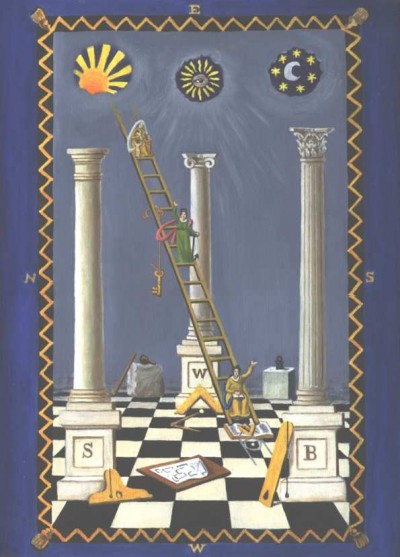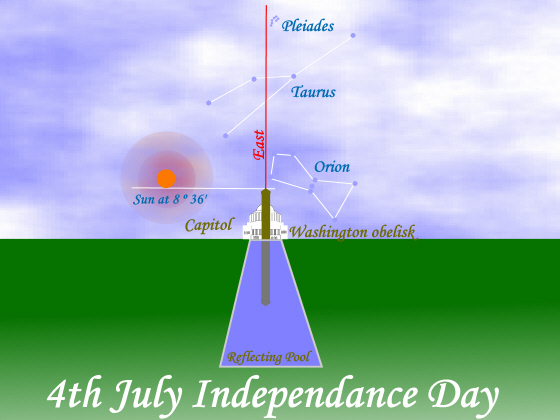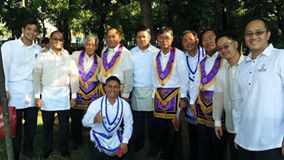We are taught in the Fellowcraft Masons Degree that masonic wages of our ancient brethren are corn, wine and oil which have been associated together from the earliest times. King Solomon paid the craftsmen from Tyre with this important production of his kingdom which constituted the wealth of the people, and were esteemed as the supports of life and the means of refreshment.
Although corn may referred to wheat or barley or other cereal grain during the early period as corn did not exist not until the discovery of the native American Indian’s maize, corn, wine, and oil are mentioned comprehensively as such eighteen times in all in the Bible. They represent the fruits of the ground, God's good gifts, and are representative of the fertility of the country. King David enumerates them among the great blessings bestowed by God. In Psalm " And wine that makes glad the heart of man, and oil to make his face to shine, and bread which strengthens man's heart. In Deuteronomy 11:14 Moses declared “That I will give you the rain of your land in his due season, the first rain and the latter rain, that you may gather in your corn, and your wine”.
In the Eleusinian Mysteries of Ancient Greece, offering to Demeter the goddess of agriculture was made through the ceremony of corn, wine, and oil as grateful praise for the good harvest. Demeter is the goddess of the harvest, who presided over grains and the fertility of the earth. Her cult was being celebrated every year by the Greeks particularly in the town of Eleusis where the secret ceremony was being held by the participants, a link to freemasonry by forefather’s mason to symbolize the corn of Demeter, the wine of Dionysus and the oil of Athena.
In devoting anything to religious purposes, the anointing with oil was considered as a necessary part of the ceremony, a rite which has descended to Christian nations. The tabernacle in the wilderness, and all its holy vessels, were, by God's express command, anointed with oil; Aaron and his two sons were set apart for the priesthood with the same ceremony; and the prophets and kings of Israel were consecrated to their offices by the same rite.
Oil is a vital commodity which is used in cooking, lighting, cleaning, and medicating. In Biblical times olive oil was the oil used primarily for all of these purposes; to lubricate with oil, to rub over or smear with oil. The effect of lubrication was to make smooth, to lessen friction and thus improve the workings of that to which it was applied. In addition to reducing friction rubbing with oil also had a protecting and healing effect when applied to parts of the body.
Another belief of using oil to decrease friction and thereby increase harmony, oil has come to be regarded as having the ability to soothe as implied in the statement, "to pour oil on troubled waters." Thus, oil has become associated with efforts to bring about peace. So, next time that disharmony occurs inside the lodge, follow the ritual of mixing water with oil.
Rite of Constitution in Masonic Lodge
Rite of Constitution in Masonic Lodge
Like in the ancient times, following the ancient elements of consecration since the days of Aaron and Moses, corn is used as the symbol of nourishment and plenty contained in the golden pitcher and poured into the sacred container covered in white cloth. Next, pouring the wine contained in silver vessel the symbol of refreshment and gladness unto the silver container. Then pouring the oil in silver vessel the symbol of joy and peace completed the masonic wages. The golden pitcher serves as essential staff of life while the silver vessels are for comforts.
In the ceremony of consecrating a Lodge upon its constitution the following words are declared and accompanied the pouring of the corn, wine, and oil upon the “Lodge", the emblem of the Holy Ark, indicate the symbolism associated with their use,
"I pour this corn, the emblem of nourishment, and consecrate this Lodge to charity."
"I pour this wine, the emblem of refreshment, and consecrate this Lodge to hope."
" I pour this oil, the emblem of joy, and consecrate this Lodge to faith."
In Mackey's Encyclopedia of Freemasonry this statement is made about the consecration of a Lodge, "Thus does this mystic ceremony instruct us to be nourished with the hidden manna of righteousness, to be refreshed with the word of the Lord and rejoice with joy unspeakable in the riches of divine grace."
"I pour this corn, the emblem of nourishment, and consecrate this Lodge to charity."
"I pour this wine, the emblem of refreshment, and consecrate this Lodge to hope."
" I pour this oil, the emblem of joy, and consecrate this Lodge to faith."
In Mackey's Encyclopedia of Freemasonry this statement is made about the consecration of a Lodge, "Thus does this mystic ceremony instruct us to be nourished with the hidden manna of righteousness, to be refreshed with the word of the Lord and rejoice with joy unspeakable in the riches of divine grace."
The most important meaning of the wages of corn, wine, and oil in the constitution of the Lodge, as in the Fellowcraft Degree symbolizes the fact that the laborer is worthy and qualified of his hire and should do the work of a man with responsibility as he is entitled to a just reward physically and spiritually.
As symbols of obedience corn, wine, and oil are mentioned first in Deuteronomy 7:13, "Listen to these ordinances, be true to them and observe them and in return Yahweh, your God, will be true to the covenant ... He will bless ... the produce of your soil, your corn, your wine, your oil."
As symbols of obedience corn, wine, and oil are mentioned first in Deuteronomy 7:13, "Listen to these ordinances, be true to them and observe them and in return Yahweh, your God, will be true to the covenant ... He will bless ... the produce of your soil, your corn, your wine, your oil."










